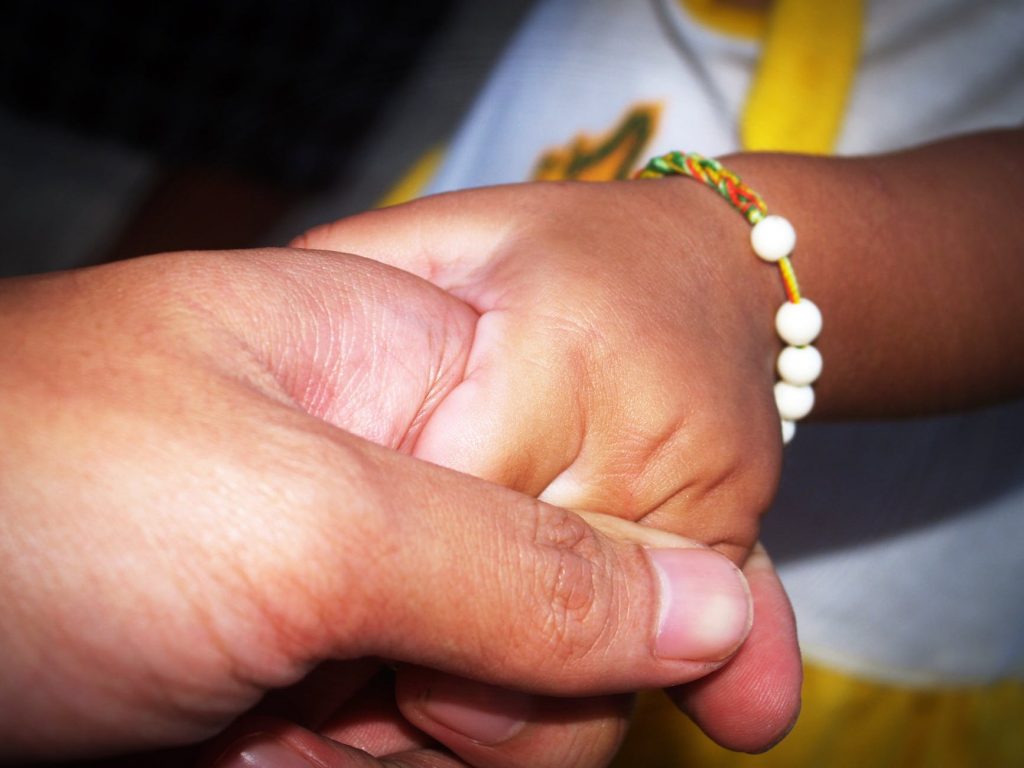There are several ways to nurture your child’s mental well-being. Most parents would agree that all they want is for their children to be happy. Yet, most adults have yet to figure out what happiness is for themselves, or what happiness for their children really means.
While most people tend to attach happiness to people, places, and things, the reality is that the happiest people know and love who they are, are aware of their strengths and talents, possess the intellect to express their emotions in a healthy manner, understand the importance of (and indulge in) positive relationships, and know essentially how to navigate (emotionally) trials and tribulations that occur throughout life.

Ways to Nurture Your Child’s Mental Well-Being
Essentially, the happiest people on earth are individuals that are mentally healthy. As a parent and your child’s first teachers, if you want your children to grow up to be happy adults, it becomes necessary for you to create a home environment that supports mental health.
There are a ton of ways to nurture your child’s mental well-being, but here are a few suggestions on how to accomplish this below:
Know the Signs of Mental Illness in Children
Though parents would like to protect their children in every way, this simply isn’t possible. The truth is that mental illness in children is real and, unfortunately, happening more and more every day.
There are a lot of things that children go through at home and in school that they don’t yet know how to cope with that can cause mental strain or overwhelming emotions.

If you’re not mindful of signs that your child is going through something mentally, things could spiral out of control. For example, a teenager who is having a hard time dealing with having to move to a new place may start to isolate themselves, show a decline in their school work, and even turn to harmful substances like drugs and alcohol which would require a need for substance abuse help for teens.
So, it is extremely important for a parent to be aware of their child’s behavior so they can address the matter before things get out of control.
Take Care of Your Mental Health
You can talk to your children until you’re blue in the face about the importance of taking care of their mental health, but they will often model what they see.
So, the first bit of advice would be to practice what you preach. Show them how to love themselves, how to be proud of their strengths and aware of their weaknesses, how to express themselves in a constructive manner, and how to cultivate positive relationships.
Build Their Self-Esteem
A person who thinks positively of themselves is ultimately happier than someone who has confidence or self-esteem issues. There are a number of ways you can show your children how to love who they are.
Tell them how much you love them every day, openly express talents or characteristics about them that you love, allow them the freedom to do things for themselves (as they get older), give them age-appropriate responsibilities that help them to learn about the purpose and contribution, and also spend quality time with them so they understand their significance.

Teach Them Resilience
Though children tend to be a lot more resilient than adults, this is something you still want to educate your children on. As you’re aware, life isn’t always going to be rainbows and sunny skies.
There are going to be instances in which things are especially stressful or trying. Your children need to know how to effectively cope with the trials and tribulations throughout life.
To help your children become more resilient by teaching them how to express themselves in stressful, traumatic, or trying situations, creating a safe environment where your children feel comfortable enough to communicate with you, teach them effective ways to manage their stress or emotions, and most importantly help them to learn to appreciate the good things and find the silver linings. Children also need to know how to reach out for help when their emotions are too overwhelming.
Mental illness in children increases at alarming rates each year. While there are a number of factors that play into this epidemic, ensuring that children can lead happy and healthy lives starts at home.
As a parent, it is your responsibility to show them how to love themselves, belief in themselves, cultivate positive relationships, and handle their emotions during the trials of life in a healthy manner. If you can master this, you will have given your children the greatest gift possible – true health and happiness.